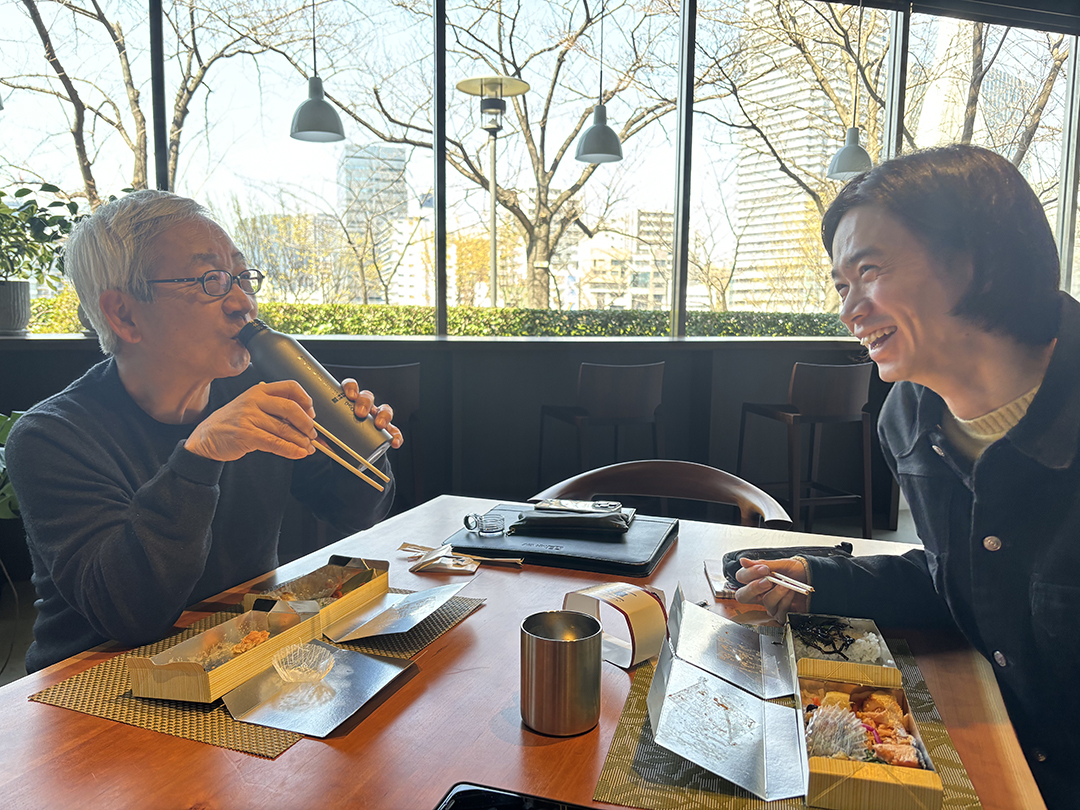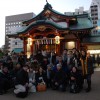Interviewer: Masashi Kurobe

Kurobe: Today’s coffee break theme is “Cities and Countryside.” I come from a rural town, but I have been living in Tokyo for some time now and have gotten used to urban life. Recently, I went to Shimane Izumo for a lighting survey. While walking through the town, I found that the lighting was different from that in the city, simple and not overly decorated, which was very attractive. Personally, I like experiencing first hand light in rural areas and viewing city lights from a distance. For example, the night view from the LPA office.
Mende: That’s a new perspective. Speaking of “cities and countryside,” when we say things like “there are no dark places in Tokyo,” but in the countryside, there are so many dark places that people might fall into rice fields. So, they say they need more lights and install LED security lights. Stereotypically speaking, I think there is a huge difference in the atmosphere or quality of light in the city and the countryside.
Kurobe: That’s true. When I lived in my hometown, I never thought darkness was an inconvenience, but now when I go back home, there are so many places that are truly dark and you can’t see anything.
Now, I think you’ve traveled to many countries. Do you have a favorite rural town or countryside area?
Mende: I have traveled, but mostly for business trips as an adult. So my perspective is mainly as a visitor, which is not the same as having everyday experiences. When I was in elementary school, I used to spend about a month of my summer vacation in Utsunomiya, Tochigi. Based on that experience, the differences between urban and rural is not just about the scenery, but also the sounds and smells of a place. The smell of a city is a mix of many different scents, so there isn’t one typical smell. There is also certainly a difference in the way of life. Some people from rural areas come to the city seeking more freedom, while others come to the city and feel they don’t quite fit in. How did you feel when you first came to Tokyo?
Kurobe: When I first came to Tokyo, I walked around many of the crowded neighborhoods, and thought about how I was now a resident of Tokyo. Now, I am very used to city life, but I prefer to avoid crowded areas. I am very satisfied with my life in the city, but I think that at some point I want to move back to my hometown. I don’t know why, but maybe I also have a sense of belonging or something.
Mende: It’s true that Japanese people have always sought something spiritual in nature, so there is a strong sense of hometown love and attachment to what is rooted there. For most Americans, this is unimaginable. But sadly, these days, when people from Kansai come to Kanto, they stop speaking in Kansai dialect. There is a trend of standardizing local characteristics and atmospheres. No matter which train station you get off at, you don’t see much difference. In this sense, it’s the urbanization of the countryside and the ruralization of the city.
Kurobe: Maybe that’s true. I am also someone who has been standardized, and my hometown dialect has gradually faded since I moved to Tokyo. On the other hand, when I return home and hear everyone using the dialect in conversation, it feels a bit strange. I love my hometown, this is not who I wanted to become.
Mende: It is a bit sad that regional characteristics are disappearing. If we don’t intentionally preserve them, they will really vanish. I’ve also thought about moving to the countryside and growing vegetables, but I don’t think I can manage vegetable farming and rural life. I’ll probably continue living in the convenience of the city. Dirty, bad, urban air isn’t so bad.
Kurobe: The Japanese unique sense of belonging to their land might backfire, causing them to completely assimilate to the city, losing regional characteristics and atmosphere along the way. This is similar to my relationship with LPA. I want to continue working hard, not just by being here and carrying out tasks, but by expressing my own personality and atmosphere.
Thank you very much for today.











